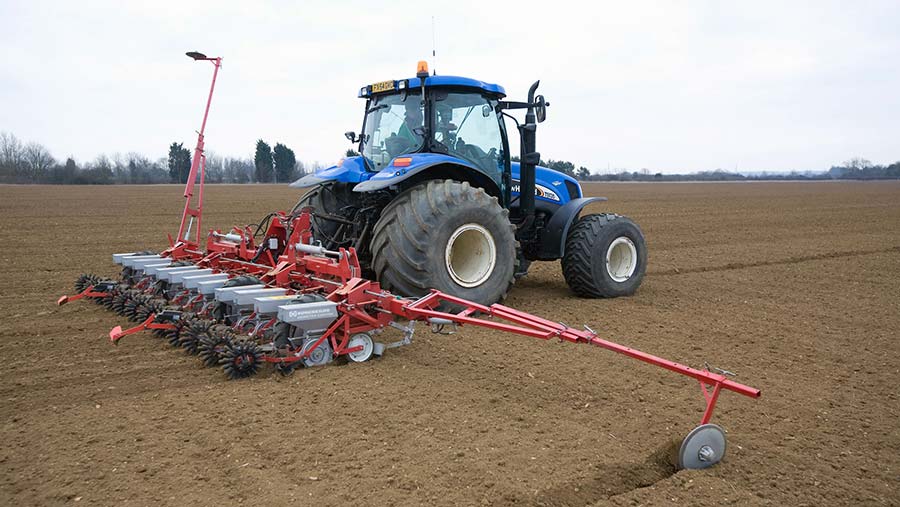Neonicotinoid ban could harm sugar beet yields for decades
 © Tim Scrivener
© Tim Scrivener Decades of improvements in sugar beet yield are under threat from the government’s support for a total ban on neonicotinoids, British Sugar has warned.
The group of chemicals could be withdrawn from use as soon as the middle of December, when EU member states could vote on a complete ban in a bid to halt declining bee populations (see panel below).
However, concerns have been raised that a blanket approach risks harming sugar beet production, and having a bigger effect on the environment.
See also: Can sugar beet survive a future without neonicotinoids?
Stafford Proctor, a sugar beet grower in south Lincolnshire, said: “It’s very disappointing because the amount of pesticide that we use to control aphid vectors is going to increase (without neonicotinoids).
“As farmers, we hate to use pesticides because they are expensive, they are costly to apply and we are always trying to reduce our impact on the environment.”
A ban on neonicotinoids would result in more applications of pyrethroids, which are used post-emergence, and take out many more beneficial insects as well as the intended target, he warned.
No known evidence
Colm McKay, agriculture director at British Sugar, said: “As far as we know there is no evidence around sugar beet that the concerns about neonicotinoids are as relevant as with other crops.”
He explained that as sugar beet is not a flowering plant it does not attract bees, and said that British Sugar would be calling for a lengthy transition period for growers to adapt if the ban goes through.
Neonicotinoids form an important part of protecting the establishing sugar beet crop and, chiefly, protect against the aphid-spread beet yellow virus, which can reduce yields by 25-50%.
Mr Mckay said: “The mid-2020s would be a reasonable timeframe to breed resistance [but] there is often significant yield lag when a new trait is introduced, as was seen when rhizomania resistance was introduced.”
Where next for neonicotinoids?
The European Commission proposal calls for an extension of the existing ban on neonics on flowering crops to all field-based crops, including cereals and sugar beet.
The expectation is that the proposal will be debated by EU member state technical experts in the standing committee on plants, animals, food and feed (Scopaff) at its meeting on 12-13 December – though the actual agenda is yet to be published.
If enough member states speak in favour of the plan, the commission may put it to the vote, and if there is a sufficient majority (16 out of 28 member states, representing 65% or more of the total EU population) the proposal will pass into law.
It is understood that Germany and France are likely to vote to extend the ban on neonics to all crops and, with the UK now expected to join them, the proposal has a good chance of succeeding.
